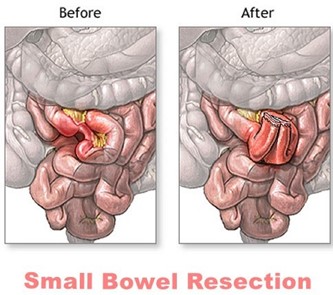A patient reports gas pains and abdominal distention 2 days after a small bowel resection. Which nursing action should the nurse take?
Administer morphine sulfate.
Encourage the patient to ambulate.
Offer the prescribed promethazine.
Instill a mineral oil retention enema.
The Correct Answer is B
Gas pains and abdominal distention are common postoperative complications following small bowel resection. Ambulation is a simple and effective nursing intervention that can help alleviate these symptoms. Walking helps stimulate peristalsis, which can help move gas and stool through the gastrointestinal tract. It can also help prevent postoperative complications such as pneumonia and deep vein thrombosis.
Administering morphine sulfate (option A) may relieve pain, but it can also worsen constipation and abdominal distention. Promethazine (option C) is an antiemetic medication and may be helpful if the patient is experiencing nausea, but it is not the best intervention for gas pain and abdominal distention. Instilling a mineral oil retention enema (option D) may also be helpful in some cases, but it is not typically the first intervention for these symptoms and should be ordered by a healthcare provider.

Nursing Test Bank
Naxlex Comprehensive Predictor Exams
Related Questions
Correct Answer is ["B","E","F"]
Explanation
The other options are not typically used in the treatment of thyroid storm. Captopril is an angiotensin-converting enzyme (ACE) inhibitor used for hypertension and congestive heart failure, amiodarone is an antiarrhythmic drug used for cardiac arrhythmias, and aspirin is a nonsteroidal anti-inflammatory drug (NSAID) used for pain relief and fever reduction.
Correct Answer is B
Explanation
IV fluids are not typically used as a treatment for UTIs (urinary tract infections) as they do not directly address the infection itself. The main reason for administering IV fluids to a patient with a UTI would be to ensure adequate hydration, especially if the patient is experiencing fever or other symptoms of dehydration. Adequate hydration can also help improve the efficacy of antibiotics in treating the infection by ensuring that the urinary system is properly functioning and able to flush out bacteria.
Therefore, option b would be the closest answer as IV fluids may be given to facilitate the administration of IV antibiotics. However, it is important to note that antibiotics are the primary treatment for UTIs, and IV fluids are usually given as a supportive measure to ensure the patient's overall well-being. Flushing bacteria from the urinary tract or diluting bacteria are not considered primary rationales for administering IV fluids in a patient with a UTI. Relief of pain and discomfort may be managed with pain medication, but this is not the primary reason for IV fluid administration.
Whether you are a student looking to ace your exams or a practicing nurse seeking to enhance your expertise , our nursing education contents will empower you with the confidence and competence to make a difference in the lives of patients and become a respected leader in the healthcare field.
Visit Naxlex, invest in your future and unlock endless possibilities with our unparalleled nursing education contents today
Report Wrong Answer on the Current Question
Do you disagree with the answer? If yes, what is your expected answer? Explain.
Kindly be descriptive with the issue you are facing.

